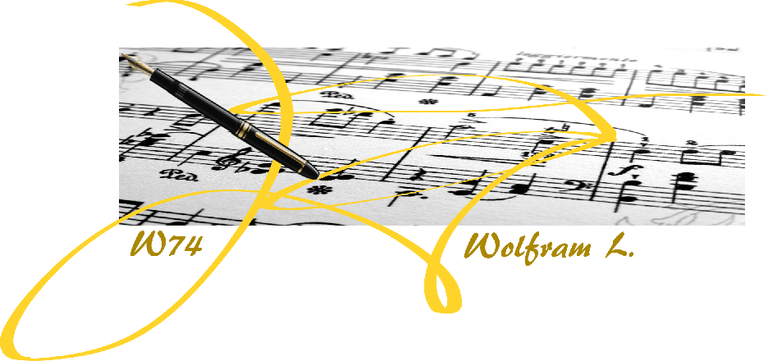Fighting poverty, disease, idleness and forgetting with music



Ein musikalischer Kampf gegen Armut, Krankheit, Müßiggang und das Vergessen.

Habib Koité is one of the best-known musicians not only in his home country of Mali, but also beyond the borders of the African continent. Born in 1958, he found security in the daily hustle and bustle of life with seventeen siblings and the rest of his family in the West African country of Mali. His musical talent became apparent very early on, and he was awarded a scholarship to the 'Institute National des Arts' in Bamako. It was there that he was asked to choose his favourite instrument. He chose the guitar, which still accompanies him on stage today.
Habib Koité ist nicht nur einer der bekanntesten Musiker in seinem Heimatland, sondern auch über alle Landesgrenzen in Afrika hinweg.1958 erblickte er das Licht der Welt und fand Geborgenheit im täglichen Trubel mit siebzehn Geschwistern und dem Rest der Familie im westafrikanischen Mali.Da sein musikalisches Talent sich bereits sehr früh offenbarte, erhielt er in Stipendium für das „Institute National des Arts“ in Bamako. Dort fiel bei der Wahl eines bevorzugten Instrumentes sein Augenmerk auf die Gitarre, die ihn auch heute noch stets auf die Bühne begleitet.
From the very beginning, Habib Koité has been passionately interested in the traditional music of West Africa and has used it as the basis for his new interpretations. With the album 'Kharifa', the artist has succeeded in creating not only a masterpiece, but also a political and social wake-up call for all those who have been ignoring for decades how much explosive material has been left behind on the continent since the end of colonisation. In 'Mandé', he calls for reconciliation. In 'Wara', he gets right to the point and admits that life is nothing but a daily struggle.
Von Beginn an interessierte sich Habib Koité brennend für die traditionelle Musik Westafrikas und nahm sie als Grundlage für seine Neuinterpretationen. Mit dem Album „Kharifa“ glückte dem Künstler nicht nur ein Meisterwerk, sondern auch ein politischer und sozialer Weckruf an alle jene, die seit Jahrzehnten ignorieren, wie viel Sprengstoff auf dem Kontinent seit dem Ende der Kolonisation zurückgeblieben ist. Während er mit dem Song „Mandé“ noch zur Versöhnung aufruft, kommt er mit „Wara“ auf den Punkt und muss sich eingestehen, dass das Leben nichts anderes, als ein täglicher Kampf ist.
Habib Koité describes the kind of music he composes, writes lyrics for and produces as world music, incorporating all the styles that make this experience so exciting. With his first band 'Bamada' (when he was just eighteen years old) and the song 'Cigarette A Banana', he had his first national success. In 1994, he set up his own record label and at the same time released his debut album, 'Muso Ko', which went from zero to number two in the world music charts. He then made it all the way to the top with its direct follow-up, 'Ma Ya'.
Habib Koité bezeichnet die Art von Musik, die er komponiert, mit Text versieht und produziert als Weltmusik, die alle Stilrichtungen mit einbezieht, die dieses Erlebnis so spannend macht. Den ersten überregionalen Erfolg feierte er mit seiner ersten Band „Bamada“ (da war er gerade achtzehn Jahre alt und dem Song „Cigarette A Banana“. 1994 gründete er sein eigenes Label und stellte gleichzeitig sein Debütalbum „Muso Ko“ vor, welches von 0 auf Platz 2 der World-Music-Charts schaffte. Ganz an die Spitze schaffte er es dann mit dem direkten Nachfolger „Ma Ya“.
Since then, the musical biography of Habib Koité has taken on an almost turbulent shape. From one day to another, from Africa to working with Jackson Bowne and Bonnie Raitt. After being invited by David Letterman to perform on his "Late Night" show, the name of the musician from faraway Mali was well known in America. He appeared as a guest with the ART Ensemble of Chicago. He continued to work tirelessly to raise awareness of the situation in his homeland, often in collaboration with other artists and under various banners. Simultaneously, he released the album 'Brothers in Bamako' with the blues guitarist Eric Bibb.
Seither nimmt die musikalische Biografie von Habib Koité nahezu turbulente Gestalt an. Von heute auf morgen raus aus Afrika und in der Zusammenarbeit mit Jackson Bowne und Bonnie Raitt. Nach der Einladung von David Letterman in dessen „Late Night“ war es dann wahrhaftig so, dass auch in Amerika der Name dieses Musikers aus dem fernen Mali hinreichend bekannt war. Er spielte als Gast mit dem „ART Ensemble Of Chicago“ und hielt unermüdlich (meist mit anderen Künstlern zusammen und verschiedensten Mottos) an seinem Streben fest, auf die Situation in seiner Heimat hinzuweisen. Dazwischen brachte er noch mit dem Blues-Gitarristen Eric Bibb das Album „Brothers in Bamako“ auf den Markt.
In the course of my research for this jazz matinée, I came across the opinion of a critic who, in his own words, sums it up quite succinctly: To this day, Koité's music impresses with timelessly brilliant harmonies and rhythms that are immediately moving - authentic art that courageously stands up for understanding and tolerance and forges musical and lyrical bonds between cultures. For the album 'Kharifa', Habib Koité has brought some reinforcements from his home country into the studio with him. That would be: The famous kora player Toumani Diabaté makes a guest appearance on 'Forever', Amy Sacko, singer of Ngoni Ba, Bassekou Kouyaté's group, can be heard as a background singer on 'Symbo', as can Abou Sissoko of the same group. This promises to be a lot of Afro-beat, jazz mixed with folk and a lot of rhythm.
Bei meiner Recherche zu dieser Jazz-Matinee stieß ich auf die Meinung eines Kritikers, der es mit seinen Worten ziemlich genau auf den Punkt bringt: „Bis heute besticht Koité`s Musik durch zeitlos brillante Harmonien und Rhythmen, die unmittelbar berühren - authentische Kunst, die beherzt für Verständigung und Toleranz eintritt und musikalisch-lyrische Bande zwischen den Kulturen knüpft.“ Für das Album „Kharifa“ holte sich Habib Koité Verstärkung aus der Heimat mit ins Studio. Als da wären: Der bekannte Koraspieler Toumani Diabaté gastiert auf „Forever“, Amy Sacko, Sängerin von Ngoni Ba, der Gruppe von Bassekou Kouyaté ist als Backgroundsängerin auf „Symbo“ zu hören, ebenso Abou Sissoko von selbiger Band. Dies verspricht viel Afrobeat, Jazz gemischt mit Folk und viel Rhythmus.

Jazz-Chronik
All Jazz-Matinee performances
Ada Morghe, Afra Kane, Alfredo Rodriguez, Alma Naidu, Alune Wade, Andrea Motis, Balimaya Projekt, Bai Kamara Jr. & The Voodoo Sniffers, Bebo Best & The Super Lounge Orchestra, Beat Funktion, Big Bad Voodoo Daddy, Blue Note Tokyo, Breakdown Brass, Candy Dulfer, Carlos Reisch & The Jazz-RAPertoire, Christmas-Jazz, Cantal Acda & The Atlantic Trifters, Cécile McLorin Salvant, Club des Belugas, Cory Henry, Damian Lewis, David Peña Dorantes, Denver Cuss, De-Phazz, Debo Band, Dominic Miller, Dominique Fils-Aimé, Eartha Kitt, Emmet Cohen, Erik Truffaz, Esther Sévérac, Fat Freddy’s Drop, Fixi & Nicolas Giraud, Footprint Project, Gare Du Nord, Galactic, Gesangskapelle Hermann, Ghoast-Note, Goran Bregović & The Wedding and Funeral Orchestra, Gyedu-Blay Ambolley, Gypsophilia, Hania Rani, Harold Lopez-Nussa, Herbert Pixner Projekt, Ibrahim Maalouf, Imperial Tiger Orchestra, Ina Forsman, Indra Rios, Isaac Birituro and The Rail Abandon, Iyeoka Ivie Okoawo, Jazz meets Pop, Jazzkantine, Jeff Goldblum & The Mildred Snitzer Orchestra, Jembaa Groove, Jennifer Hartswick, Joe Bel, Jowee Omicil, Jon Batiste, Julian Lage,Jule Malischke, Jungle by Night, Jungle Fire, Karen Souza, Kinga Glyk, Kyle Eastwood, Lady Blackbird, Lars Kutschke, Laufey, Laurent Bardainne & Tigre D'Eau Douce, Lee Ritenour, Lehmanns Brothers, Les Égarés - Sissko, Segal, Parisien, Peirani, Les Yeux D'La Tête, Lisa Bassenge, Liv Warfield, Lizz Wright, Love Songs, Luca Sestak-Trio, Madeleine Peyroux, Maik Mondial, Malika Tirolien, Malted Milk, Maria Mazzotta, Martin Grubinger, Maya Fadeeva, Monika-Roscher-Bigband, Monkey House, Mo Kolours, Muito Kaballa, New Cool Collective, Nils Petter Molvær, Nostalgia 77, Nubiyan Twist, Paco de Lucia, Peter Lipa, Paolo Conte, Parov Stelar, Phat Phunktion, Quatro Nuevo, Ranky Tanky, Rebekka Bakken, Redtenbacher’s Funkestra, Rita Payes Roma, Rocket Men, Roberto Fonseca, Robin McKelle, Rhythm Future Quartet, Shotnez, Ska-Jazz, Snarky Puppy, Somi Kakoma, St. Paul Peterson, Sunbörn/The KutiMangoes, Soothsayers/Youthsayers, TaxiWars, The Bahama Soul Club, The Budos Band, The Crusaders, The Jazz Defenders, The Jakob Manz Projekt, The Jazzrausch Bigband, The Souljazz Ochestra, Trevor Kowalski, Triosence, Trombone Shorty, True Loves, Wanubalé, Wynton Marsalis & Eric Clapton, Yilian Cañizares, 06/2024 New Releases, 07/2024 New Releases, 09/2024 New Offers

If you are interested in new releases on the market outside of jazz, I would highly recommend the Saturday post by @seckorama, who will always keep you up to date with the latest New Tunes!
Für alle Musikliebhaber, die sich auch abseits des Jazz über Neuerscheinungen auf dem Markt interessieren, kann ich wärmstens die samstägliche Post von @seckorama empfehlen, der euch mit seinen New Tunes stets auf dem aktuellen Stand hält!


#hive #posh
Sometimes because of the work, we don't even have time for ourselves